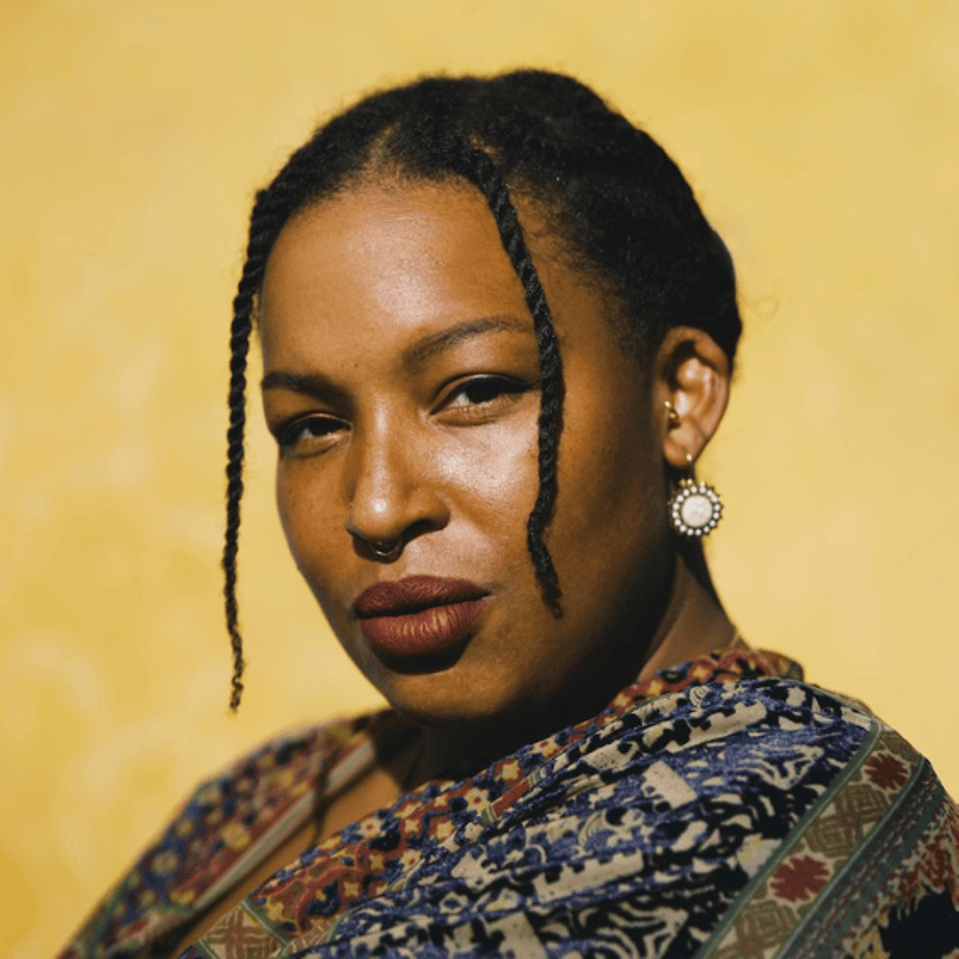As DEI continues to be vilified, one virtual summit is hoping to reclaim the conversation. The Future of DEI Virtual Summit, created by identity and belonging coach Erin Corine Johnson, isn’t your average professional conference. There are no panels or professional keynotes per se but instead, Johnson has curated something that many in the DEI space have been longing for: honest conversations, global perspectives, and a community of changemakers working towards collective liberation.
For Johnson, who is a multidisciplinary artist and community organizer, the summit emerged not as a response to the political moment, but at a realization that many of DEI’s performative practices were failing those they were designed to protect. “While a lot of the socio-political upheaval we are currently experiencing has been accelerated by the current administration, it really is not the root cause. The real root cause is years of performative policymaking without a sustainable and accountable practice to back those policies,” she said. “This summit is for people with or without a DEI title asking, ‘What can I do now?’”
The summit spans across five days and includes conversations, panels, and fireside chats, all with the central questions: What is the future of DEI and how do we catalyze change outside of unstable institutions? The summit includes a wide range of speakers—from digital educators to antiracist scholars—who have each felt the tremors of DEI backlash and have found new ways to forge ahead. Blair Imani, creator of the popular Smarter in Seconds series, will speak on creative approaches to inclusive education. “Despite these harsh policies turning their backs on equity,” Imani said, “we do not have to give in. We can innovate.”
Across the Atlantic, anti-racism educator and author Desirée Bela-Lobedde will draw attention to the often-invisible racism in Spain and address the myth that DEI is solely an American issue. “In Spain…many believe antiracist work is only necessary elsewhere,” she said. “I hope to inspire attendees to reflect on their own contexts, question what they’ve been taught, and feel empowered to contribute actively to antiracist transformation wherever they are.” Bela-Lobedde’s Laboratorio de Deconstrucción, a virtual learning space, is a combination of masterclass, book club and open conversation, that serves as a model for what the future of DEI might look like: rooted in lived experience and sustained by the community.
For Louis and Arlene Byrd, their work and their lived reality as parents of Black children is deeply intertwined. As entrepreneurs, parents, and summit panelists, they will discuss how to talk to children about racism. Their session, titled “How to Talk to Kids About Racism,” tackles the difficult but necessary work of educating kids about systems of inequality while preserving their innocence and without robbing them of hope and optimism.
“This is a topic dear to us as a husband-and-wife team…who have two beautiful children, boys, Black boys, we are raising in this world,” they said. “We have already started having these discussions around race, privilege, systems, and how they impact our lives. We have been very open and vulnerable on social about our parenting and doing our part to raise emotionally intelligent, open-minded humans.” When asked about the future of DEI, Louis didn’t mince words. “I believe the future of DEI is about ownership. Ownership of businesses, infrastructure, neighborhoods, and communities.”
What sets the Future of DEI Summit apart is the mission to bring in the everyday person. “I began noticing about a year and a half ago that the chasm between the people practicing DEI, especially at the organizational level, and those that DEI was meant to serve, was growing deeper,” Johnson explained. “Not only were people finding it difficult to fully understand what DEI is actually doing in their companies…but everyday people didn’t understand how they themselves could make a difference from right where they were standing, right from their own zones of genius.” The summit, she said, is an attempt to close that gap by humanizing the work and decentralizing power.
In Johnson’s view, the backlash to DEI is not a reason to withdraw, but an invitation to rebuild something better. “Anti-DEI activists will come for us regardless of what we call it,” she said. “What happens when we care for each other, build our own tables, and feed our own communities in spite of them?” This embodiment of Johnson’s mission—radical care, community building, and sustained resistance— is personified through each speaker. Whether it’s Imani’s enthusiasm about transnational solidarity, Bela-Lobedde’s invitation for a greater racial reckoning in Europe, or the Byrds’ commitment to raising conscious and aware children, the message is clear: DEI isn’t dead; it is being reborn—outside corporations, beyond catchphrases, and in the hands of the community, who’ve never needed permission to do the work in the first place.

